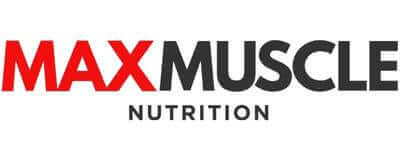When it comes to fitness, we often hear phrases like “no pain, no gain” or “push harder.” But here’s a little-known truth: your rest days are just as important as your workout days. Understanding the balance between recovery and overtraining can be the difference between achieving your goals or hitting a frustrating plateau. Let’s dive into why rest is the ultimate secret weapon for growth and gains.
What Is Overtraining?
Overtraining happens when you push your body beyond its ability to recover. It’s like driving a car without stopping for gas—eventually, you’ll break down.
Common Signs of Overtraining:
- Chronic fatigue or lack of energy.
- Decreased performance in the gym.
- Persistent muscle soreness or joint pain.
- Irritability, mood swings, or trouble sleeping.
While dedication is admirable, too much of a good thing can lead to burnout and even injuries that derail your progress.
Learn why Fatigue and underperformance are common in athletes.
Why Recovery Matters

Recovery isn’t just about feeling better—it’s when your body rebuilds and strengthens. During exercise, you break down muscle fibers. In the recovery phase, those fibers repair themselves, growing stronger and more resilient.
The Science of Recovery:
- Muscle Repair: Protein synthesis peaks during rest, helping muscles rebuild and grow.
- Nervous System Reset: Intense workouts stress your central nervous system, and recovery helps restore balance.
- Injury Prevention: Rest reduces the risk of overuse injuries like tendonitis or stress fractures.
Types of Recovery
Not all rest is created equal. Here are two types of recovery to consider:
1. Active Recovery
This involves low-intensity activities that promote blood flow and reduce stiffness. Think yoga, light walking, or swimming.
- Benefits: Enhances circulation, aids muscle recovery, and keeps you moving without overexertion.
2. Passive Recovery
This is pure rest—your body does the work while you relax. Think sleep, stretching, or simply taking the day off.
- Benefits: Essential for repairing deep tissue damage and resetting your energy levels.
The best recovery methods for athletes
The Dangers of Skipping Recovery

When you don’t allow your body to recover, you set the stage for a range of issues:
- Decreased Performance: Overtraining can lead to slower running times, weaker lifts, and less stamina.
- Increased Risk of Illness: Chronic stress from overtraining can weaken your immune system.
- Mental Burnout: Pushing too hard can rob you of the joy and motivation that fuels your fitness journey.
How to Train Smarter, Not Harder
To unlock your full potential, focus on a balance of effort and recovery. Here’s how:
1. Plan Your Rest Days
Make rest a non-negotiable part of your schedule. For example, train 4-5 days a week and dedicate the remaining days to active or passive recovery.
2. Prioritize Sleep
Sleep is where the magic happens. Aim for 7-9 hours per night to optimize hormone production (like growth hormone) and muscle repair.
3. Use Recovery Tools
Incorporate tools like foam rollers, massage guns, or even recovery supplements to speed up the process. At Max Muscle Sports Nutrition - Stone Mountain, we offer supplements that aid muscle recovery and reduce soreness, so you can bounce back faster.
Optimize Your Recovery with Arm Plus - Ultimate Post-Workout Formula for Lean Muscle Growth!
4. Listen to Your Body
Pay attention to how you feel. If you’re dragging, sore, or mentally drained, it might be time to scale back. Remember, skipping one workout won’t ruin your progress—but overtraining might.
10 Ways to Train Smarter, Not Harder
Supplementing for Better Recovery

Supplements can play a key role in enhancing your recovery. Here are a few essentials to consider:
- BCAAs (Branched-Chain Amino Acids): Help reduce muscle soreness and prevent muscle breakdown.
- Protein Powders: Support muscle repair and growth.
- Electrolytes: Replenish lost minerals and keep your muscles functioning optimally after a tough workout.
Stop by our Stone Mountain location, and we’ll help you choose the right supplements for your goals.
Final Thoughts
Training smarter isn’t about working less—it’s about working effectively. Rest and recovery aren’t weaknesses; they’re strategies. By giving your body the time it needs to rebuild, you’ll not only achieve better results but also ensure that your fitness journey remains sustainable and enjoyable.
If this blog helped you rethink your approach to rest and recovery, share it with a friend, your gym buddy, or on social media! Tag us @maxmuscleatl—we’d love to hear how you’re incorporating recovery into your routine.
Stay strong, stay rested, and keep pushing toward your goals!
— Your Max Muscle Team
About the Author
Mike Pringle, former pro football star and owner of Max Muscle Sports Nutrition - Stone Mountain, has dedicated over 15 years to helping athletes and fitness enthusiasts achieve their peak potential. As a certified fitness trainer and nutrition coach, Mike is passionate about educating others on the power of recovery and smart training for long-term success.


